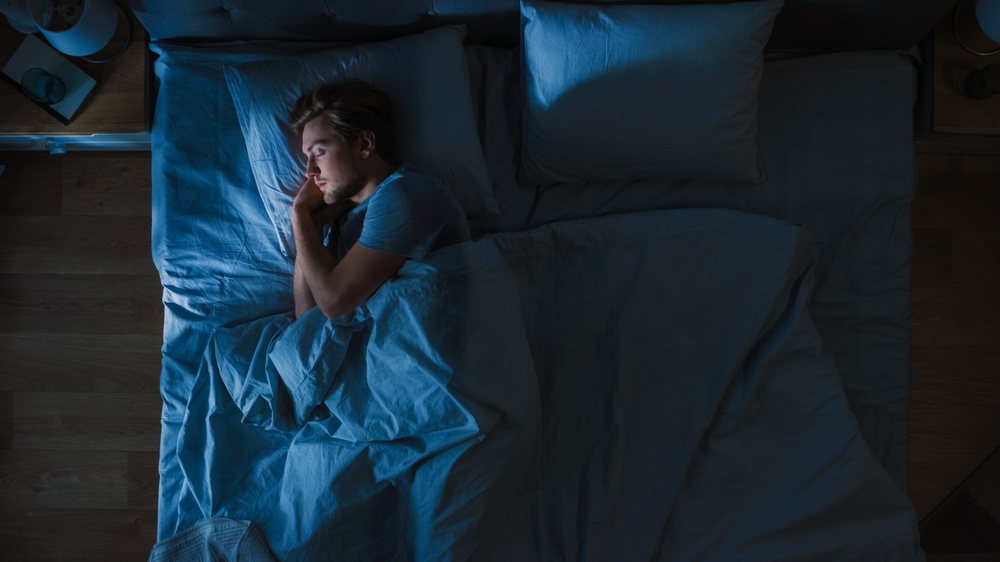Introduction: How Quality Sleep Impacts Your Long-Term Health and Well-Being
Sleep is more than just a nightly recharge—it has profound effects on both your short-term and long-term health. Consistently getting quality sleep not only helps you feel more energized and focused during the day but also plays a crucial role in maintaining your overall well-being and longevity. Optimizing your sleep habits can improve cognitive function, reduce the risk of chronic diseases, and even slow down the aging process. By prioritizing better sleep, you're making an investment in your long-term health, vitality, and quality of life. Let's dig into how some of the experts discuss how sleep directly affects your health and longevity and provide biohacking strategies to upgrade your sleep quality.
The Importance of Sleep in Biohacking, Health, and Longevity
In the realm of biohacking, sleep is one of the most critical pillars for optimizing health and longevity. Biohackers view sleep not merely as rest but as a tool for recovery, performance enhancement, cognitive optimization, and even life extension. Maximizing the quality and efficiency of your sleep is key if you want to elevate your well-being and extend your lifespan.
How Sleep Impacts Your Health and Longevity
-
Cellular Repair and Anti-Aging Benefits
Sleep is when your body repairs damaged cells, clears out toxins, and rejuvenates itself. Research by Dr. Matthew Walker, a sleep expert and neuroscientist, shows that deep sleep is essential for detoxifying your brain, especially from beta-amyloid, a protein linked to Alzheimer’s disease . This means better sleep could protect you from cognitive decline and other age-related conditions. -
Hormone Regulation and Longevity
Quality sleep regulates your hormone levels, including cortisol, melatonin, and growth hormone. When your sleep is poor, your body produces too much cortisol, which accelerates aging and can lead to chronic diseases. Dr. Rhonda Patrick emphasizes that consistent, high-quality sleep helps maintain a healthy balance of these hormones, which is critical for long-term health . -
Cognitive Function and Brain Longevity
Deep sleep and REM sleep stages are vital for memory consolidation and brain function. Neuroscientist Andrew Huberman often highlights that getting enough REM sleep can slow cognitive aging, reduce the risk of neurodegenerative diseases, and support overall brain health . -
Sleep and Metabolic Health
Poor sleep has a direct link to weight gain and insulin resistance, which increases your risk of type 2 diabetes. According to Dr. Peter Attia, consistently getting less than 7 hours of sleep a night can harm your metabolism, making it harder for your body to regulate blood sugar levels. Ensuring quality sleep helps keep your metabolism in check and supports longevity.
Current Sleep Statistics: How Much Sleep Are People Really Getting?
Before diving into the ways you can biohack your sleep, let’s first examine how much sleep people are actually getting—and the consequences of sleep deprivation.
According to the Centers for Disease Control and Prevention (CDC), more than 35% of adults in the U.S. report getting less than 7 hours of sleep per night, while the National Sleep Foundation recommends adults get 7-9 hours of sleep for optimal health. On average, adults in the U.S. only manage to get about 6.8 hours of sleep per night. In the UK, it’s even lower, with people averaging around 6.6 hours per night.
Sleep disorders also affect millions:
- 50-70 million Americans suffer from sleep disorders, including insomnia and sleep apnea.
- 40% of adults experience daytime sleepiness that impacts their ability to focus and perform daily activities.
The Impact of Sleep Deprivation on Quality of Life
Consistently getting less sleep than recommended can lead to significant negative effects on your daily life. Here’s how poor sleep impacts you:
- Reduced Cognitive Performance: Chronic sleep deprivation impairs your ability to concentrate and think clearly. Studies show that people who sleep less than 6 hours per night for two weeks perform similarly to those who’ve had no sleep for 48 hours.
- Increased Risk of Mental Health Issues: Lack of sleep is closely tied to conditions like anxiety and depression. People who suffer from insomnia are 10 times more likely to develop depression.
- Higher Risk of Chronic Illness: Regularly getting less than 7 hours of sleep increases your risk of heart disease, diabetes, and obesity. Sleep-deprived individuals have a 30% greater risk of developing these chronic conditions.
- Decreased Work Performance: The National Sleep Foundation estimates that sleep-related workplace productivity losses cost the U.S. economy $411 billion annually.
With most adults averaging less than 7 hours of sleep, it’s essential to prioritize better sleep habits. Aim for 7-9 hours of quality sleep to improve your cognitive performance, mood, physical health, and overall quality of life.
Optimizing Your Sleep: Biohacking Techniques for Better Rest
-
Optimize Your Circadian Rhythm
Aligning your sleep patterns with your natural circadian rhythms is essential for achieving deep, restorative sleep. You can do this by exposing yourself to natural sunlight in the morning and reducing blue light exposure at night. Experts like Dr. Satchin Panda, a pioneer in circadian biology, recommend light therapy devices and blue-light blocking glasses to enhance sleep . -
Create the Ultimate Sleep Environment
Your sleep environment plays a massive role in how well you sleep. You want to create a space that is cool, quiet, and dark. Dr. Matthew Walker suggests that the ideal sleep temperature is between 60-67°F, and using blackout curtains or a sleep mask can help prevent light from disrupting your circadian rhythm . -
Use Sleep Trackers for Data-Driven Improvements
Wearable tech like the Oura Ring or WHOOP can give you real-time data about your sleep cycles, heart rate variability, and recovery. By tracking this data, you can adjust your habits and optimize your sleep over time. Dr. Andrew Huberman frequently advises the use of such tools to track REM and deep sleep, two stages that are critical for longevity . -
Biohacking Sleep with Nutrition
Nutrition also plays a significant role in your sleep quality. Foods rich in magnesium (like spinach and almonds) can help calm your nervous system and promote deeper sleep. Dr. Rhonda Patrick often recommends magnesium supplementation (e.g., magnesium glycinate) for improved sleep quality . -
Melatonin and GABA Supplementation for Better Sleep
Melatonin, the sleep hormone, can help you fall asleep faster, especially if your circadian rhythm is off due to travel or stress. You can also use GABA (Gamma-Aminobutyric Acid) supplements to reduce nighttime anxiety and help you fall asleep more easily. Dr. Mindy Pelz suggests starting with low doses of melatonin to avoid any grogginess the next day . -
Master Breathwork and Meditation Techniques
Stress and anxiety are common sleep disruptors, but breathwork and meditation can help. Techniques like 4-7-8 breathing or guided meditations from apps like Calm or Headspace have been shown to activate your parasympathetic nervous system, helping you relax and fall asleep faster. Wim Hof’s breathing techniques are widely recommended to induce deep relaxation before bed . -
Advanced Sleep Tech for Deep Rest
Technology such as weighted blankets, PEMF (Pulsed Electromagnetic Field) devices, and sound machines are gaining popularity among biohackers for improving sleep. Using these can help you enter deeper sleep cycles, which are critical for cellular repair. Bryan Johnson, a prominent biohacker, has shared his use of PEMF devices for enhancing sleep recovery and overall health .
Long-Term Health Benefits of Better Sleep
By improving your sleep quality, you’re not only improving your day-to-day performance but also investing in your long-term health. Sleep disorders such as sleep apnea or chronic insomnia can significantly increase your risk of developing cardiovascular disease, diabetes, and cognitive decline—conditions that are linked to shorter lifespans. Consistently getting 7-9 hours of high-quality sleep each night may lower your risk of these diseases and contribute to a longer, healthier life.
Longevity expert Dr. David Sinclair highlights sleep as a key pillar for slowing the aging process. By reducing inflammation and oxidative stress during sleep, you can significantly extend your lifespan.
Conclusion: Why You Need to Prioritize Sleep
The data is clear—most people aren’t getting enough sleep, and the impact on daily life is substantial. By setting a goal of 7-9 hours of quality sleep per night, you can improve your health, performance, and long-term longevity. Using the biohacking strategies discussed in this guide, you’ll be able to sleep better, feel more energized, and enjoy a healthier, longer life.




